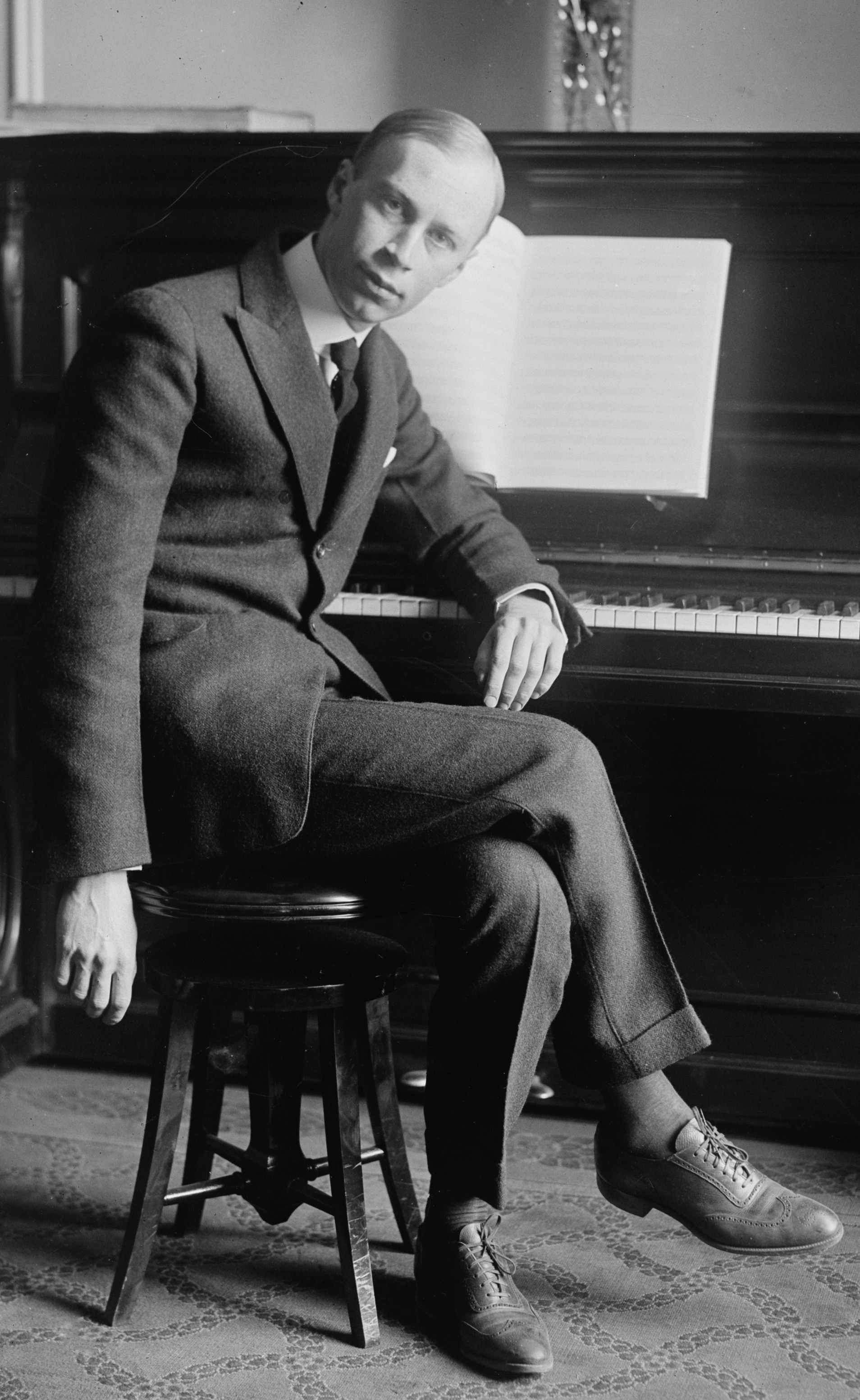Prokofiev, Sergei Sergeyevich << praw KAW fyehf, sehr GAY sehr GEH yuh vihch >> (1891-1953), was a major Russian composer. His first symphony, the Classical (1918), symphonic fairy tale Peter and the Wolf (1936), and cantata Alexander Nevsky (1939) are among the most popular classical works of the 1900’s. Prokofiev’s music contains sharp humor, lyric melodies, and percussive use of instruments.

Prokofiev was also a brilliant pianist and often performed his own concertos and solo piano works. His solo piano pieces and nine sonatas became an important part of keyboard music in the first half of the 1900’s. Most notable are the Visions fugitives (1918) and Piano Sonata No. 7 (1943).
Prokofiev was born on April 23, 1891, in Ukraine. From 1904 to 1914, he studied piano, composition, and conducting at the St. Petersburg Conservatory in Russia. Prokofiev moved to New York City in 1918 and settled in Paris in 1923. Two of his best-known compositions, Piano Concerto No. 3 and the opera The Love for Three Oranges, were first performed in Chicago in 1921.
In 1936, Prokofiev settled permanently in Moscow. The major works he composed there include the ballets Romeo and Juliet (1938), Cinderella (1945), and The Stone Flower (1954). Prokofiev composed the first version of his important opera War and Peace in 1941 and 1942 and revised it from 1946 to 1952. His Symphony No. 5 (1945) is among the most successful of his seven symphonies. He died on March 5, 1953.
